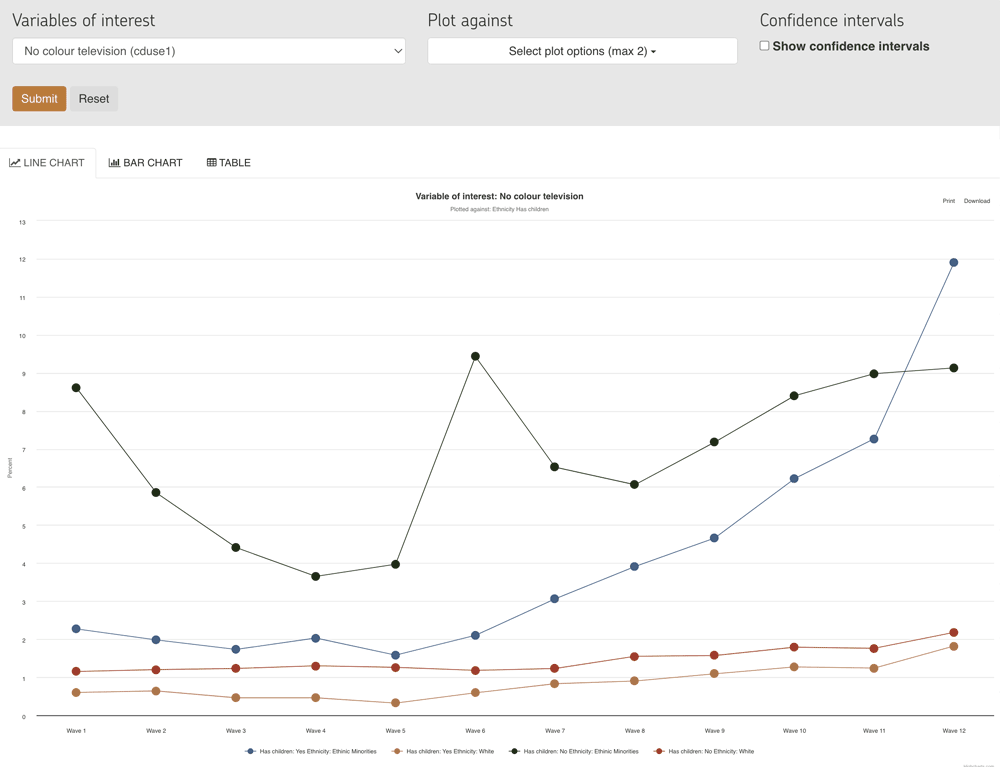In Understanding Society we ask our participants a wide range of questions about their finances. As a longitudinal study we can see how income and expenditure cross the life course, helping us understand how income and expenditure varies across the UK.
We are one of the few UK datasets that contains information on individuals’ income and also follows these individuals over time.
Understanding Society asks questions about income and expenditure at the individual level. Questions on household income and expenditure are asked at each wave of the Study, allowing researchers to see year by year what happens to income and spending over time. The Study also asks questions about financial strain, household assets and spending. For income, questionnaires ask about job related earnings, unearned income and state benefits.
To give a broader picture of household finances we ask about wealth and debts and ask participants how they subjectively feel about their finances.
Some questions on finances are asked at specific ages, so younger people are asked about student loans and those aged over 40 are asked about retirement planning and pension drawdown.
Understanding Society also asks about financial behaviour and attitudes, including charitable giving, personal pensions, savings and child maintenance.
Understanding Society collects detailed information at each wave on personal income. All individuals aged 16 and over are asked to report on their earnings from main and second jobs, social security benefits, state and private benefits, and private transfers and investment income. Derived from these survey reports of individual income from different sources are a number of variables corresponding to different income concepts. These can be measured at the individual or household level, net or gross, or with or without household level deductions. You can find information about using individual income variables and household income variables in the main survey user guide.
Understanding Society is used by the Department for Work and Pensions as the basis for the Official Statistic for Income Dynamics. This statistic presents information on changes in income over time and presents findings on persistent low income. Individuals are considered to be in persistent low income if they are in relative low income for at least three out of four consecutive annual interviews. The latest release on Income Dynamics is available from the DWP.
The Treasury has used Understanding Society data to gauge the impact of the Covid-19 pandemic on working household incomes. The Treasury used data from Understanding Society’s Covid-19 Survey to compare employment status, and any change in take-home pay, in May 2020 compared with February, before lockdown was introduced. They also calculated the probability of people at different earning levels losing their job, being furloughed, or seeing their earnings/profit drop, again using our Study. The Treasury document, Impact of COVID-19 on working household incomes: distributional analysis as of May 2020, showed that the government’s interventions were worth an average of around a fifth of incomes for working households, and reduced the scale of losses for working households by up to two-thirds.
Our Economics Topic Champions Dr Paul Fisher (Topic Champion, Income), Professor Thomas Crossley (Topic Champion, Consumption and Expenditure) and Professor Hamish Low (Topic Champion, Economic Risks) regularly publish research using Understanding Society data. Find out about their latest research here.



